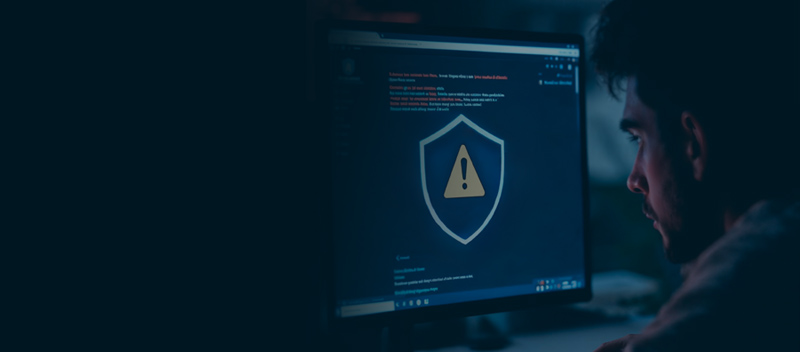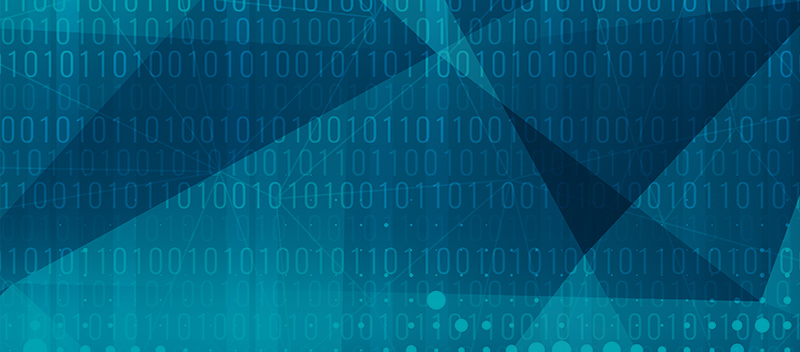Blog Cybersecurity in Accounting: The Shield for Client Data
Cybersecurity in Accounting: The Shield for Client Data

As custodians of sensitive financial information, accounting firms increasingly find themselves in the crosshairs of cybercriminals. Therefore, a robust cybersecurity framework is not just a technical necessity but also a business imperative.
With the rising dependence on digital technologies and remote work, the risk exposure for accounting firms has expanded significantly. A data breach can have severe consequences, including potential financial loss, harm to reputation, and substantial regulatory penalties.
In accounting, cybersecurity serves as a crucial defense for safeguarding client data. Given the evolving threat landscape, these firms must maintain a vigilant and proactive approach to cybersecurity—potentially determining their reputation and long-term viability.
Cybersecurity Threats Faced by Accounting Firms
The most common threats these firms face include ransomware and phishing attacks. Cybercriminals employ a variety of tactics, such as malware, phishing expeditions, and data theft, to steal valuable client data. Additionally, human error is a significant risk factor, as it’s the leading cause of cybersecurity threats.
Accounting firms risk losing revenue, clients, and reputation without cybersecurity protections. A cyberattack can lead to a significant loss of client trust and potentially devastating risks and exposures for an accounting firm. The aftermath of a cyberattack can also involve regulatory action by state and federal agencies, reputational damage, and ancillary expenses related to the breach.
To counteract these threats, accounting professionals must adopt robust cybersecurity measures that safeguard their data and infrastructure. These measures include:
Risk Assessment: This involves identifying, assessing, and implementing critical controls in the application. It helps to identify vulnerabilities in the system before cybercriminals can exploit them.
Penetration Testing: Also known as ethical hacking, penetration testing tests a computer system, network, or web application to find security vulnerabilities that an attacker could exploit. Regular penetration testing can help accounting firms identify system weaknesses and take corrective action.
Security Awareness Training: Employees often represent a significant vulnerability in any firm’s cybersecurity defenses. Regular training sessions can ensure that all staff members are aware of potential cyber threats. This will help them understand the importance of their role in maintaining security.
For more on our cybersecurity and compliance services, Click Here
Compliance and Security Measures
Regulatory bodies have set expectations for accounting firms to ensure data security and privacy. These include the following:
IRS: The IRS requires tax professionals to create a written information security plan that details their strategy for protecting client data. The IRS also recommends following the guidelines set by the Federal Trade Commission under its Safeguards Rule.
Cyber Essentials: This UK government-supported scheme helps organizations protect themselves against online threats. It outlines five critical controls for primary cyber defense: secure configuration, boundary firewalls, access controls, patch management, and malware protection.
General Data Protection Regulation (GDPR): GDPR is a European Union regulation with global implications and sets strict standards for data protection. It requires businesses to protect EU citizens’ personal data and privacy for transactions occurring within EU member states.
Implementation of Cybersecurity Controls and Certifications
Accounting firms must implement cybersecurity controls and acquire relevant certifications to ensure the highest level of data security and integrity.
National Institute of Standards and Technology’s (NIST) 800-171: The NIST 800-171 provides guidelines for protecting Controlled Unclassified Information (CUI) in non-federal systems and organizations. Accounting firms that deal with federal contracts may be required to comply with these guidelines.
Cybersecurity Maturity Model Certification (CMMC): CMMC is a framework developed by the United States Department of Defense (DoD) to enhance and standardize cybersecurity practices within the defense industrial base (DIB). The CMMC ensures that contractors and subcontractors involved in DoD projects have robust cybersecurity measures to protect sensitive information.
ISO 27001: ISO 27001 is a globally recognized standard for the establishment, implementation, operationalization, monitoring, review, maintenance, and improvement of an information security management system (ISMS). It helps organizations manage their security practices in line with international best practices.
Compliance with these regulatory expectations and implementing cybersecurity controls and certifications helps accounting firms safeguard sensitive data and build trust with clients and regulators.
Best Practices for Data Security in Accounting Firms
Accounting firms must implement robust security measures to protect their sensitive data in the ever-evolving digital age. Here are some key strategies:
Virtual Private Network (VPN): A VPN can help secure internet connections and protect your online activities from being tracked or intercepted.
Password Protection: Using complex passwords and changing them regularly is a fundamental security practice. Password managers can be beneficial in generating and storing complex passwords securely.
Two-Factor Authentication: This adds an extra layer of security by requiring users to verify their identity using a second method after entering their password.
Physical Security Measures include using a physical security fob or biometric scan to control access to devices or systems.
Control Sensitive Data Transfers: Implement measures to control how sensitive data is transferred within and outside your organization.
Employee Training and Awareness: Regularly conducting training sessions to familiarize staff with potential security threats, phishing attacks, and data security best practices can significantly reduce the risk of cyberattacks.
Utilization of AI and Other Advanced Technologies: Artificial Intelligence (AI) and other advanced technologies can significantly enhance cybersecurity efforts. For example, AI can detect anomalies in network traffic, identify suspicious email activity, and respond to threats in real-time.
Consequences of Non-Compliance
Non-compliance with data protection laws and regulations can lead to significant financial penalties. For instance, under the IRS guidelines, failure to protect taxpayer data could result in penalties such as fines or even imprisonment. Additionally, organizations that fail to comply with the GDPR can face fines of up to 4% of their annual global turnover or €20 million, whichever is higher.
Beyond financial penalties, non-compliance can also lead to data breaches, precipitating a significant loss of brand reputation and client trust. This indirect cost often outweighs the direct expenses associated with remediation efforts following a breach. In the digital age, maintaining client trust is paramount, and once lost, it can be challenging to regain.
Ultimately, compliance with cybersecurity controls and certifications is a legal necessity and a crucial component of maintaining a solid and trustworthy business reputation.
Conclusion
As we move further into the digital age, the landscape of cybersecurity threats continues to evolve. Businesses must remain vigilant, constantly adapting their security strategies to counter these emerging threats. The task is not static but requires ongoing attention and adaptation to protect client data effectively.
Partnering with a trusted cybersecurity expert like TrustNet can ensure your business stays ahead of the curve. We can provide comprehensive solutions tailored to your unique needs, helping you confidently navigate the complex world of data protection.
Future-proof your business with TrustNet’s advanced cybersecurity and compliance solutions. Talk to an expert today.




